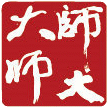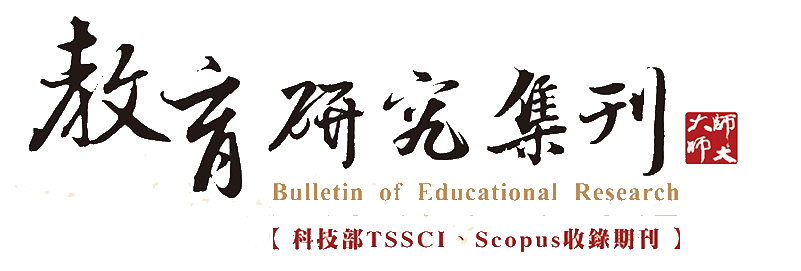| 篇名 |
成為農民:日治時期教育所實科課程發展之探析
更多文章
|
|---|---|
| 並列篇名 | Becoming a Farmer: An Analysis of the Development of Vocational Subjects in Indigenous Educational Institutes during the Japanese Colonial Period |
| 作者 | 張耀宗 |
| 中文摘要 | 研究目的 本研究的主要目的在於探析日治時期教育所實科課程的發展,以及其如何配合官方對於原住民部落的產業定位。其次,當傳統農耕是上一代對下一代的傳承,但日治時期的教育所實科則是學校教育的課程,兩者之間的差異值得深入探析。最後,想瞭解這種由日本人引進的農業型態,其對原住民部落社會的影響。 主要理論或概念架構 本研究論述架構的時程貫穿整個日治時期,以教育所法規的制定與修正的時間點作分期,有關總督府的教育所法規,分別為1908年《蕃童教育標準》、1928年《教育所教育標準》和1941年《教育所教育標準》。透過教育所法規與相關規定,以瞭解實科課程的發展歷程。 研究設計/方法/對象 本研究係屬歷史研究,除了透過各個時期教育所教育標準的探討外,也佐以相關歷史文獻的分析與討論,以瞭解教育所實科課程發展的歷程。本研究論述的範圍為日治時期蕃地的教育所實科課程,教育所教育為總督府警務機關所掌管,係官方專為蕃地原住民兒童所安排的教育措施。 研究發現或結論 從日治初期的撫墾署時期起,蕃地事務即由警察機關所掌理,在「理蕃」的方針下,原住民教育撫化成為政策的一環。既然,農民成為產業指導的首要目的,在所謂蕃政統一的原則下,教育所實科課程即在配合此產業發展,促使教育所兒童畢業後能從事農耕。除了教育所實科課程外,官方也以警察駐在所為中心,對部落進行產業指導,加上往山腳地帶遷移的集團移住措施,讓部落進入農業社會。而此農業為日本式農業,其可為原住民接受,甚而取代傳統的農耕,在於其更具有生產效率。透過實習園的農作物收入,可以減輕官方教育費的負擔,有助提升教育所兒童就學率,在1942年已達87.71%。加上昭和時期推動的高砂族保留地措施,部落各戶均可分配到耕地,使從事農耕成為部落的主要生業,依據《高砂族授產年報》的統計數字,在糧食作物的收穫量、收入與儲金的數字上,可推論部落已達自給自足。 理論或實務創見/貢獻/建議 日本現行將「實科」定義為以實際演練為主的科目,目前臺灣中學有「生活科技」課程,課程中有實作的授課內容,「實科」具有職業預備、就業考量的意涵,而「生活科技」則具有生涯試探的功能,兩者仍有差異之處。如照日治時期的實科課程,其上課時數是有含括實習,以增進技術的嫻熟,「生活科技」課程為強化實作能力,也可規劃實習、實作的時數。其次,因教育所設有實習園,安排跟實科有關、且非屬課表內的實習時數,這跟這幾年推行的「自造教育」類同,學校的「自造教育及科技中心」如適度規劃實習時數,相信其將提升教學效果。 |
| 英文摘要 | Purpose The main purpose of this article is to analyze the development of vocational subjects in indigenous educational institutes during the Japanese colonial period and how it cooperated with the official industrial positioning of indigenous tribes. While traditional farming was passed down from one generation to the next, vocational subjects in educational institutes during the Japanese colonial period were school subjects. The difference between the two deserves in-depth analysis. Finally, this study seeks to understand the impact of Japanese-introduced agricultural practices in indigenous tribal societies. Main Theories or Conceptual Frameworks The analysis spans the entire Japanese colonial period, divided into periods based on the formulation and revision of the Educational Institute regulations. The regulations issued by the Educational Institute of Taiwan Governor’s Office were the 1908 “Education Standards for the Indigenous Children” and the 1928 and 1941 “Education Standards of Educational Institute”. The study examines the development process of vocational subjects through the lens of these Educational Institute regulations. Research Design/Methods/Participants This article employs a historical research approach. In addition to discussing the standards of Indigenous Educational Institutes across different periods, it is also supported by the analysis and discussion of relevant historical documents to understand the development process of vocational subjects of Indigenous Educational Institute. Research Findings or Conclusions From the early days of the Japanese occupation, the indigenous affairs were handled by the police. Under the policy of “managing indigenous peoples”, indigenous peoples education became part of the policy. The purpose of “managing indigenous peoples” was to train these peoples as citizens and farmers, as reflected in official policies. Agriculture become the official industry positioning for the indigenous tribes, and vocational subjects of Indigenous Education Institute was in line with the development of this industry had enabled graduates from educational institutes to engage in farming. In addition to vocational subjects at the educational institute, the government also provided industrial guidance to the tribes with the police station as the center. Together with the group relocation measures to the foothills, the tribes were allowed to enter an agricultural society. This type of agriculture was Japanese style agriculture, which was acceptable to the indigenous peoples and could even replace traditional farming because it was more productive. The crop income from the internship park could reduce the burden of official education fees and help increase the enrollment rate of children in educational Institute, which reached 87.71% in 1942. Coupled with the Takasago tribe’s reservation measures promoted during the Showa period, each tribal household could be allocated farmland, making farming the main livelihood of the tribe. According to the statistics of the “Takasago people’s production annual report”, in terms of the harvest volume of food crops and income and savings, it could be inferred that the tribe had reached self-sufficiency. Theoretical or Practical Insights/Contributions/Recommendations Japan currently defines “vocational subjects” as subjects that focus on practical exercises. Currently, Taiwan’s middle schools offer “Life Science and Technology” curriculums, which also include practical teaching content. These two types of curriculums may appear to be similar: the former had the connotation of career preparation and employment consideration in Japanese colonial period, while the latter have the function of career trial; similar to the former, the class hours of the latter include internships to enhance skill. For the current “Life Science and Technology” curriculums in middle schools are to strengthen practical abilities, they can appropriately plan the time for internships and practical activities. Because the Indigenous Educational Institute had an internship park, it also arranged internship hours related to vocational subjects and not included in the curriculum. This is similar to the “self-made education” promoted in recent years. This is similar to the “self-made education” promoted in recent years. If the school’s self-made education and technology center appropriately plans the internship hours, it will improve the teaching effect. |
| 起訖頁 | 043-077 |
| 關鍵詞 | 日治時期、教育所、農民、實科、臺灣原住民、the Japanese colonial period、Indigenous Educational Institutes、farmer、vocational subjects、Taiwan indigenous peoples |
| 刊名 | 教育研究集刊 |
| 期數 | 202409 (70:3期) |
| 出版單位 | 國立臺灣師範大學教育學系 |
| DOI | 10.6910/BER.202409_70(3).0002 複製DOI |
| 該期刊-上一篇 | 高中公民與社會科教科書轉化:從課綱疑問句學習內容至教科書設計 |
| 該期刊-下一篇 | 五四時期馬來亞華人社會的「走向底層」運動與通俗學校之興起 |








